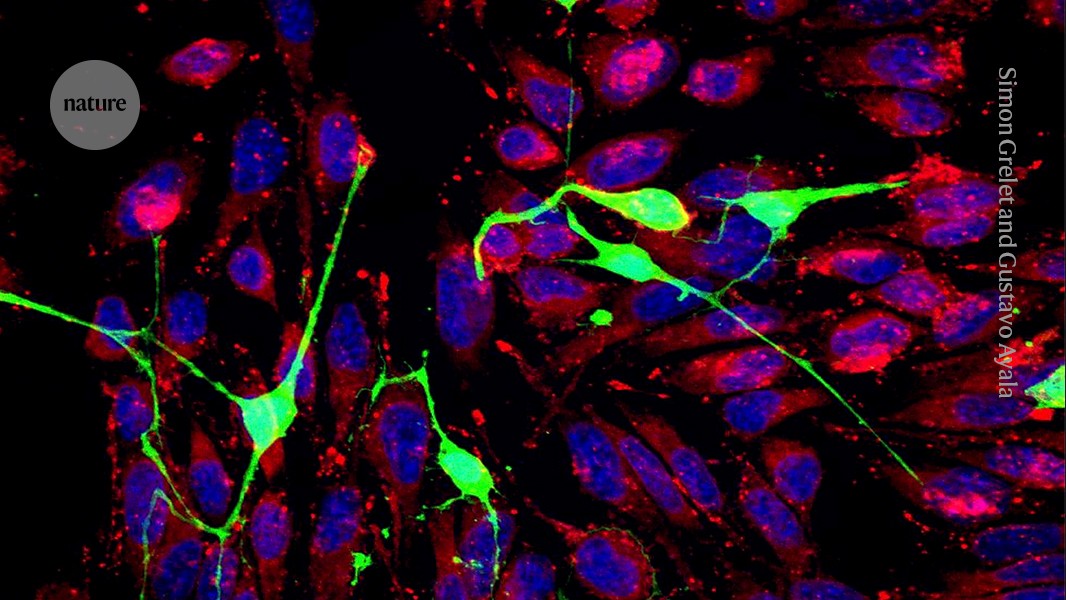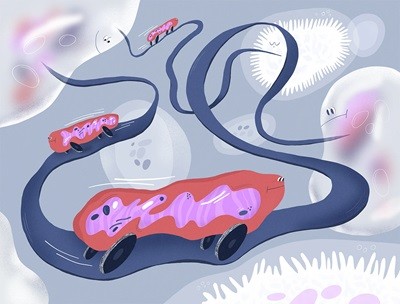Cancer cells turbocharge themselves by stealing the energy-producing units from neurons in tumours, scientists report today in Nature1. This act of thievery seems to give cancer cells a boost to help them survive when they metastasize, or spread to distant organs.
The findings show that cancer cells siphon off neurons’ mitochondria — organelles that generate most of a cell’s energy — through ultrathin tubes that grow between the two types of cells. The purloined mitochondria increase cancer cells’ ability to withstand the stress of shooting through blood vessels during metastasis.
“Now we have a new culprit for metastasis, which means we have a new target to block metastasis,” says study co-author Simon Grelet, a cancer neurobiologist at the University of South Alabama in Mobile. “And metastasis is what make cancers so deadly.”
Energy theft
Scientists have long known that cancer co-opts the nervous system to fuel its growth. To learn more about the process, Grelet and his colleagues worked with mice that had a rodent version of aggressive breast cancer. The authors treated the mice with a chemical agent that blocks nerve function and saw that the metabolic activity in the animals’ cancer cells fell, confirming that neurons influence tumours’ metabolism.
Cells are swapping their mitochondria. What does this mean for our health?
Observations of cancer cells growing in a laboratory dish revealed that they extend drinking-straw-like tubes through which they drain neurons’ mitochondria. Other experiments showed that cancer cells with ‘stolen’ mitochondria generate more energy than do cancer cells without them.
The researchers wanted to see how the turbocharged cancer cells would fare during a simulated trip from an original ‘primary’ tumour to a metastatic site in a new tissue. So they pushed some cells through a needle and syringe to simulate the buffeting that they would encounter in the blood stream during the journey, and exposed others to hydrogen peroxide to mimic the potentially damaging chemical environment they would meet. The team found that the cells were much more likely to survive than those lacking extra mitochondria.



